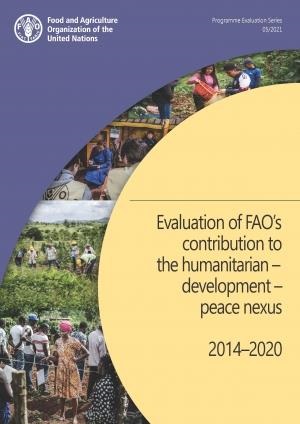Learning from conflict management and peace-sustaining work at FAO

Conflict is a major driver of food insecurity around the world. It can disrupt agricultural production, damage infrastructure, and displace people, all of which can lead to hunger and malnutrition.
FAO is working to address the effects of conflict on food security in a number of ways. First, FAO provides technical assistance to countries affected by conflict to help them improve their agricultural production and food security systems. Second, FAO works to build resilience to conflict by supporting programs that promote social cohesion and economic development. Third, FAO provides humanitarian assistance to people affected by conflict, including food aid, nutrition support, and livelihood assistance.
There are a number of ways that conflict can impact food security and livelihoods:
- Conflict can disrupt agricultural production in a number of ways. It can damage land and infrastructure, displace people, and make it difficult to access inputs such as seeds and fertilizer.
- Conflict can also damage markets and disrupt trade, making it difficult to get food to where it is needed.
- Conflict can also lead to food insecurity by displacing people and making it difficult for them to access food.
- The effects of conflict on food security can be long-lasting. Even after a conflict ends, it can take years for people to recover and rebuild their livelihoods.
FAO is ideally placed to invest in a major corporate effort to learn from its years of experience and successful examples, to mainstream and adopt the humanitarian-development-peace nexus ways of working as part of its organizational DNA. Making deliberate and informed use of approaches and practices, such as technical diplomacy, information systems and context analysis, to inform conflict-sensitive programming, rights-based frameworks and people-centred approaches to achieve inclusive and peace-sustaining results.
At the same time, FAO should step-up its footprint in, and contributions to, coordination and multi-partner fora and policy dialogues at country, regional and global levels. FAO has a comparative advantage deriving from its technical expertise and knowledge, but it should ensure this is sustained by skilled, well-informed and well-supported leadership at all levels, and by an enabling organizational system and culture, so it can deliver innovative and long-lasting results on peace to its membership, no matter whether in crisis or development settings.

